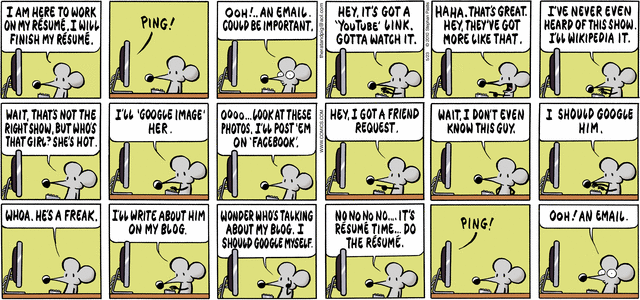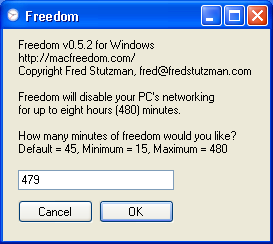Trinity Forum Academy: Conference on Technology and the Human Person
By Rosie Perera | January 5, 2011 at 8:16 pm
Thanks to ImageUpdate for the heads up:
Join the Fellows of Trinity Forum Academy at Osprey Point [90 min from Baltimore and Washington, DC] February 11-13, 2011, to explore how technology is changing our understanding of what it means to be human. President of the Center for Policy on Emerging Technologies and UN bioethicist, Dr. Nigel Cameron, and Professor of Cultural Apologetics at Westminster Seminary and jazz pianist, Dr. William Edgar, will lay out a framework for how Christian leaders can engage innovation that is challenging social, judicial, and moral boundaries. Guest speakers include Bryan Campen, Director of Social Media with Manifest Digital and New Media Advisor with The Long Now Foundation, and Jamin Brophy-Warren, former Wall Street Journal reporter and co-founder and President of Kill Screen magazine. Conference scholarships are available to Academy Fellowship applicants. Learn more about the conference and the Academy graduate program here.
Topics: Uncategorized | No Comments »
5-Minute Book Review: Flickering Pixels by Shane Hipps
By Rosie Perera | December 8, 2010 at 11:45 pm
Shane Hipps, Flickering Pixels: How Technology Shapes Your Faith (Zondervan, 2009; 184pp.)
Taking a cue from my friend Sørina (Iambic Admonit), who does five minute book reviews, since she doesn’t have time for anything longer and simply won’t do them if she doesn’t set herself a managable time limit, I’m going to give it a try:
Flickering Pixels is a light read, quite engaging but not very deep for anyone who has thought about these issues before. Hipps draws on the work of Neil Postman and Marshall McLuhan, particularly the latter’s best known quote “the medium is the message.” He uses stories, images, dialogues, and references to popular culture to communicate his message. His main purpose is to make us more aware of how technology shapes us: our relationships, the way we think and communicate, and so on. He uses the analogy of pixels on the computer screen, which usually we don’t even notice. If we train our eyes to focus on the pixels themselves, not just the message they convey, we are more aware of how they affect us. So too with all technology. As long as we are aware of the technology, its affect on us is not inevitable.
Although the subtitle would lead us to expect otherwise, only in a few places does Hipps talk specifically about how technology shapes our faith. The last chapter on community doesn’t mention technology at all, though perhaps it is meant as an antidote to the individualizing effect of technology.
Hipps is not a naysayer about technology; he merely wants us to look beneath the surface of things and not be passively affected by technology without being aware of it.
This book could be a good conversation starter for a church group just beginning to explore the subtle ways technology affects us.
Topics: Uncategorized | No Comments »
Digital detox
By Rosie Perera | December 8, 2010 at 3:21 pm
Students at Earl Haig Secondary School in Ontario are choosing to take a week of digital detox. Good for them! Sounds like it was their own initiative. I am heartened to see that even the younger generation can sense the benefit of taking some time away from being constantly in front of a screen.
Topics: Uncategorized | No Comments »
Friends or Fish? The Erosion of Privacy in an Online World
By Rosie Perera | November 9, 2010 at 4:21 pm
My latest article for Comment Magazine has been published and is available online:
Friends or Fish? The Erosion of Privacy in an Online World
Topics: Uncategorized | No Comments »
Triumph of technology
By Rosie Perera | October 15, 2010 at 4:09 am
I watched with great excitement, along with the rest of the world, as the 33 Chilean miners were brought up to the surface after being trapped for 69 days 2000 feet underground. The rescue was extremely well planned and perfectly executed. The whole event could have ended in tragedy, but because Chile took its time to do things right, and solicited advice and assistance from other countries, it went without a hitch. The technology used to extract the men from their cave was amazing. It boggles the mind that the rescuers were able to drill a hole through solid rock down half a mile in less than two months, and bring all 33 men safely up to the surface in less than 24 hours. The pièce de resistance, showing true PR genius as well as a cool use of technology, was placing a camera down below so we could all watch the rescue taking place in real time from both ends. This goes down in history as one of the greatest triumphs of hope, determination, ingenuity, and technological achievement. And for many involved…faith.
Granted, the whole situation wouldn’t have happened if it hadn’t been for a catastrophic failure of technology. But this event has led to a commitment on the part of Chile to examine the safety of all its mines and make changes. And I think the spirit of the people is strong enough to make it happen. Bravo Chile! This was a moment the world will not soon forget.
Topics: Uncategorized | No Comments »
Taking a Digital Sabbath
By Rosie Perera | September 22, 2010 at 2:43 pm
This seems to be a growing theme that keeps popping up in my peripheral vision. Maybe I’m more in tune to it and my network of friends knows I’d be interested, so they tell me about all these things. But I do sense that it’s an idea which is catching on.
The latest episode of the CBC Spark podcast had a segment on Taking a Digital Sabbath. It’s the second segment, and you can listen to just that alone (scroll down a bit for it):
Spark 120 – September 19 & 22, 2010 | CBC Radio
Topics: Uncategorized | No Comments »
Social Media Fasts
By Rosie Perera | September 12, 2010 at 8:15 pm
Dave Parry of AcademHack (blog) wrote a post on Social Media Fasts the other day. His point was that they are a good idea but they shouldn’t be mandated from above. I agree. I prefer the idea of the voluntary week-long Technology Sabbath that students in a couple of dorms at Seattle Pacific University took in 2001 (article).
A friend of mine recently quit Facebook (for a second time) after ten days of posting his “Ten Reasons Why I’m Leaving Facebook.” His reasons were well thought out. They included an admission that he is an addict, a decision to embrace “social poverty” (focus on fewer friends so that he can engage more deeply in those friendships), a choice to wear “one less mask” (we often create a false persona in our Facebook presence; though one of his friends commented that we share aspects of ourselves more universally among all our groups of friends when we share them on Facebook rather than segmenting ourselves; that’s true, but we are more likely to hide aspects that we don’t want to share with everyone, so we’re not truly being real with any subset of our FB friends), the freedom to write more handwritten letters, and the desire to “unclutter” his eye (we are bombarded by images and advertisements all day long; he is right to want to give his brain a rest by abstaining from yet another source of such input). I wish him luck in this second attempt. One friend told him he’d better not do it again as she’s getting tired of re-friending him each time he comes back, and she won’t do it a third time.
I’ve taken breaks from Facebook before, too, though I have never been as drastic as to delete my account. I’ve merely deactivated it for a period of weeks. When you reactivate it, your friend network is restored intact. You’ve missed out on whatever events and status updates happened in your absence, but you’ve also had a break from all the stupid invitations to play FarmVille or pass some meme on to all your friends, hundreds of ads, and whatever else has been sucking up your time. I highly recommend doing this every once in a while. It hasn’t cured my addiction, but it flushes out the garbage from my brain every so often, which is healthy.
Topics: Uncategorized | No Comments »
Forcing time offline gives you freedom
By Rosie Perera | June 25, 2010 at 1:20 am
Ever have a day like this?
I find it happening more and more often. It can be an addiction, an obsession, a compulsion, an enslavement to the need to check for one more new message, follow one more rabbit trail, play one more move in Scrabble, find out one more factoid, write one more blog post, before getting down to work.
I’ve recently learned of a useful tool called Freedom which blocks the Internet for a set period of time that you specify in minutes (up to 8 hours). It works pretty well. It blocks all Internet access: that includes email, websites, automatic software updates, etc. The program will not let you cancel it, so you’re pretty much stuck until the time is up. Even killing the process doesn’t restore Internet access. The only way around it is to reboot your computer, but that’s enough of an impediment to keep the distractions at bay while you get some work done. My only critique is I wish it were more flexible about input format for times: allowing longer time periods (up to 24 hours) and allowing time formats like 8:30 for 8 hours and 30 minutes, rather than making you do the math in your head (let’s see, how many minutes are there in 7 and a half hours?).
Despite the domain name, it runs on both Mac and Windows: http://macfreedom.com
Sometimes having all the freedom in the world to roam about online is actually more of a bondage. It breeds indecisiveness if you’re researching something — too much information! It opens you up to distractions. Just as submitting to Christ’s lordship brings freedom (John 8:36, “If the Son sets you free, you will be free indeed.”), so voluntarily limiting your infinite access to cyberspace for a time can bring relief from tyranny.
OK, one more blog post done. Now back to real work. (But this is my real work! Part of it, anyway.)
Topics: Uncategorized | No Comments »
Tech-addicted parents
By Rosie Perera | June 14, 2010 at 12:17 am

(Photo credit: CBS)
Thanks to The Huffington Post for bringing to my attention a recent New York Times article and CBS segment on the problems of tech-addicted parents who pay more attention to their BlackBerrys or their iPhones than to their babies. Somehow we don’t seem to notice or are more forgiving when adults do that to each other, but when we do it to our kids, look out! If parents don’t unplug from gadgets which disrupt quality time with their children, we will see a new generation of kids with behavior problems associated with neglect. Envision a new parallel program to Al-Anon: Tech-Anon, for adult children of parents who were iPhone addicts.
What’s next? CrackBerry babies?

(I could not find the original source of this photo which is reproduced all over the Internet.)
Topics: Uncategorized | No Comments »
Getting quoted in publication…cool!
By Rosie Perera | June 9, 2010 at 1:51 pm
Al Erisman quotes me in the latest issue of Christianity Today in an article about technology: The Face-to-Face Gospel and the Death of Distance. Thanks to Don Lundgren for the heads-up about this!
Topics: Uncategorized | No Comments »
« Previous Entries Next Entries »

